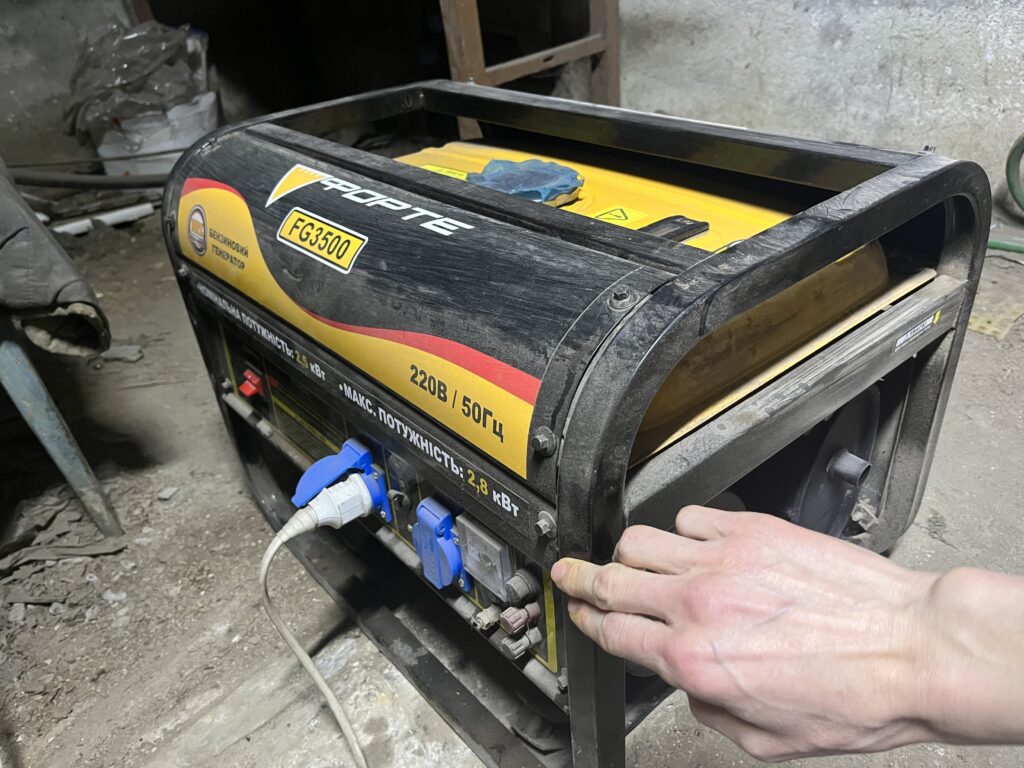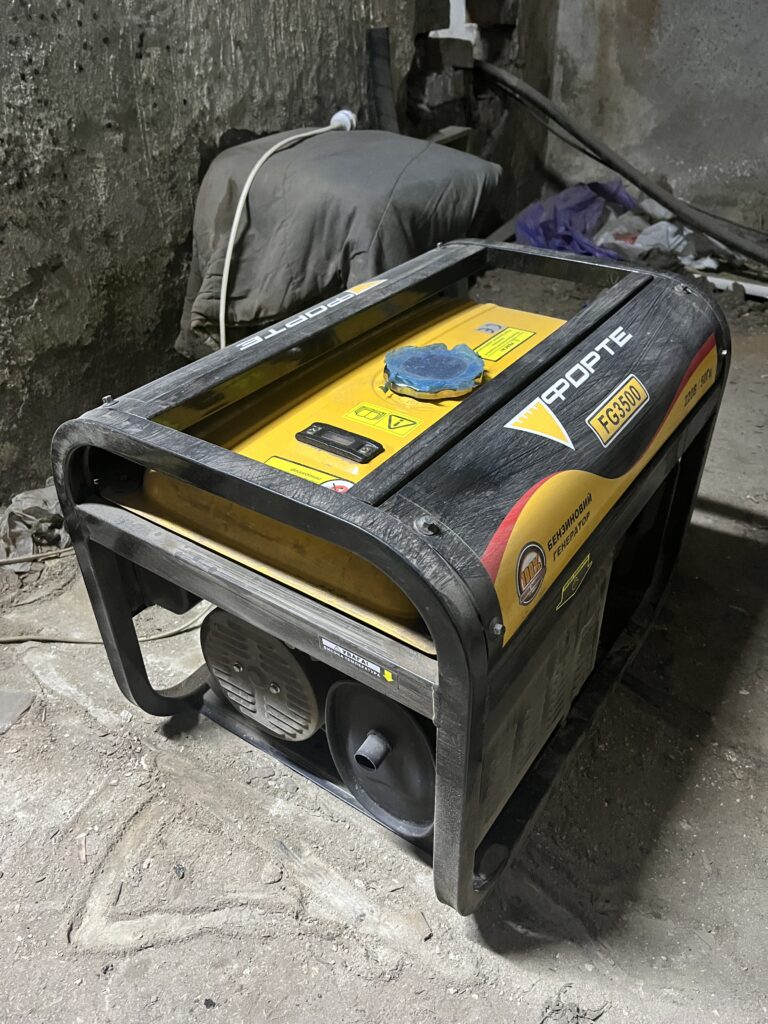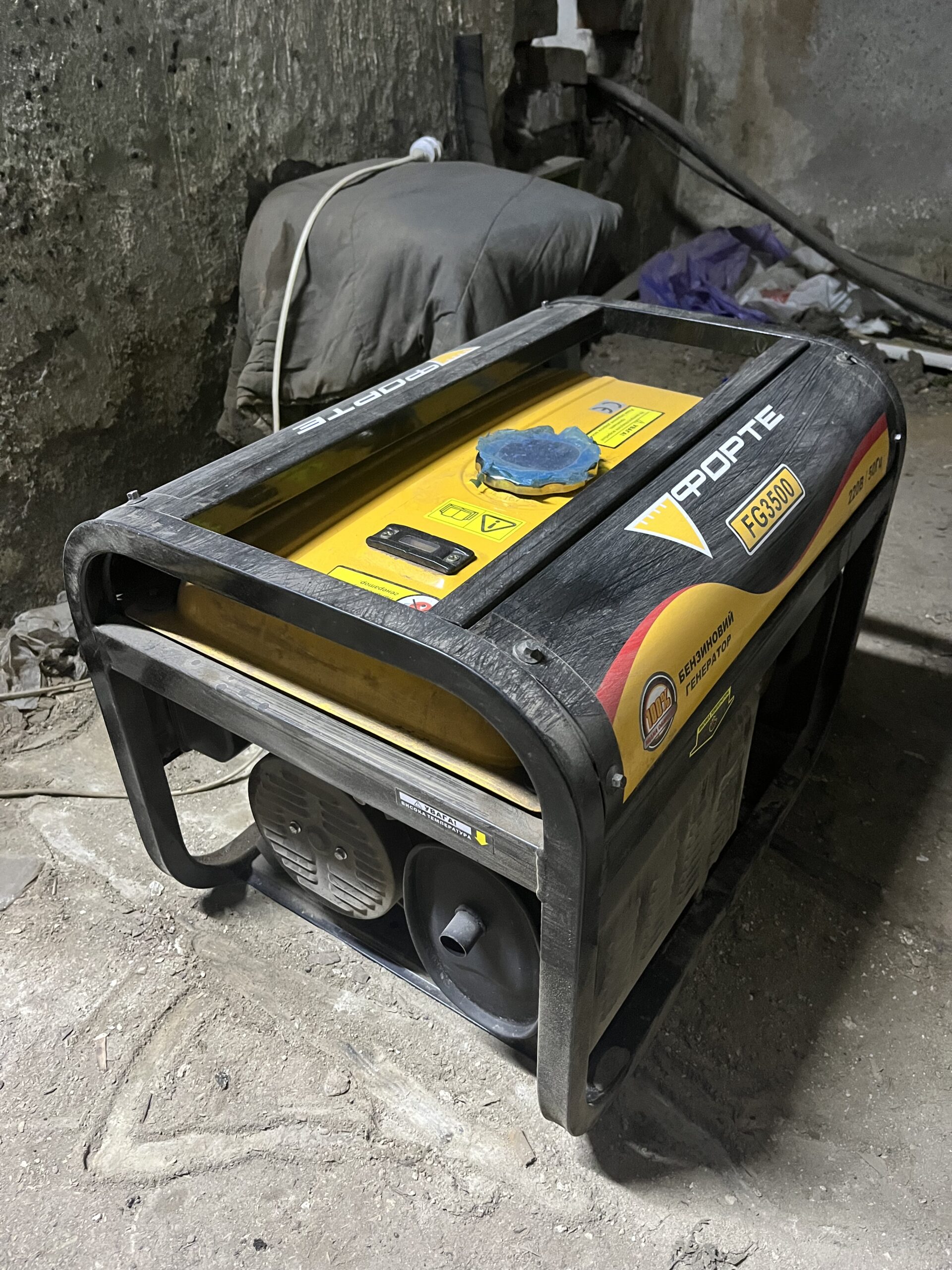Today the power went out during breakfast and remained out for most of the rest of the day. I didn’t really pay too much attention, because the weather was warm and sunny and the internet service was still working. But then at dinner time I wanted to use the food processor to blend some borscht soup into a smooth consistency for Grandmother Nina. That’s when I realized I needed electricity. OK, no problem, I thought, I’ll just take the food processor downstairs and plug it into the extension cord that is connected to the generator in the basement. That’s the generator that powers the water pumps, the television, the WiFi router and the fluorescent lamp in the dining area. I was plugging the appliance into the power strip when Gennadiy and Alexander gave me a holler – No, no, no!
Turns out, they have to be very cautious about using power because the trusty little generator down in the basement won’t handle loads over 1 kilowatt.


I took a look at specs printed on the food processor and found that it consumes 650 watts. I told Gennadiy I only needed to run it for a few seconds, and I’d unplug the fluorescent lamp first, and he said OK, go ahead and give it a try. So that’s what we did, and it worked fine. I’m very happy it worked out, because it turns out Grandmother Nina didn’t like the grainy buckwheat casserole with chunks of pork the kitchen team had prepared for the evening meal, but she did eat a hearty serving of blended borscht.
Of course, there are bigger problems with only having a bitty little generator. For instance, there’s no way to run the washing machine, which means laundry gets backed up, and there’s no way to power the refrigerator and freezers. No power for fridge and freezers wasn’t a big problem during the winter, but as ambient temperatures rise during spring and into the summer, the kitchen staff is not going to be able to rely on the “cold pantry” and will need to use the fridge and freezers more. Electric fans or space heaters may be needed too, depending on current weather conditions (some of the more feeble elderly people need to be kept in “hot-house” conditions around the clock).
If any readers would like to participate in solving the emergency/standby power problem for the nursing home, please feel free to visit the RAYA community page for details about how you might be able to help.

